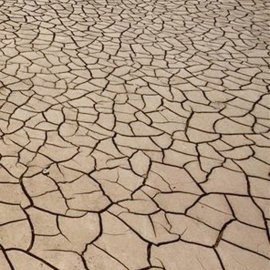Planning with Water, Part 1
-
English
-
ListenPause
I’m Peter Neill, Director of the World Ocean Observatory. The World Economic Forum is meeting this month in Davos, Switzerland. In advance of the meeting, a survey was conducted among some 900 leaders in business, politics, and civic life that concluded that the most important global risk faced to day is the world water crisis. According to Circle of Blue, a program of the Pacific Institute and one of the best web-based sources for water information, this is major shift in world attention, explained in part by climate and weather phenomena, drought, pollution, and other limits on water that dramatically affect vulnerable populations, be they in California or the American southwest, China, India, southern Europe, or Australia. “The world is not doing enough,” the survey reports. “Though the problems of floods, drought, and inadequate water supply that were projected more than two decades ago have come true, little is being done to address them effectively. Leaders are especially ill-prepared for widespread social instability…” Circle of Blue quotes Bob Sanford, chair of the Canadian Partnership Initiative, as follows: “We didn’t realize until recently how much our economy and society relied on hydrologic stability.” Well, that is not entirely true. China, for example, has been building massive water transfer systems to move water from areas in the south to the more arid north where drought, industrial irrigation, and flagrant pollution have brought scarcity as well as economic and political crises. A recent analysis by researchers at the Leeds Water Research Institute at the University of East Anglia in the UK, published in the Proceedings of the National Academy of Sciences, suggests that this extraordinary expenditure of public funds and labor may not be sufficient to meet increased economic and population growth. Dabo Guan, Professor of Climate Change Economics at the University’s School of International Development, is quoted by Bloomberg News describing the system as “pouring good water after bad.” China, India, Australia, the US – all are grappling with these conditions, certainly not theoretical any more, but immediate, devastating, and disruptive. The rising price for grain and rice resulting from severe drought has been suggested as the major contributors to social unrest, perhaps toppling a government in Egypt and crippling a regional economy in Australia and escalating prices in food dependent markets throughout the southern hemisphere. These are not problems easily dismissed or ignored. Indeed, as we have mentioned often here on World Ocean Radio, we are fighting wars for water, as much as for oil or religion. The old solutions do not serve these extreme events. It may be that the old engineering ideas and designs like the Tennessee Valley Authority in the US or the diversion of northern rivers in India cannot meet the challenge of exponential demand, degraded supply, and global warming. That proof may be now visible to us all, even those leaders gathered in the Swiss mountains to contemplate the world condition and its most critical needs. There is a direct link between water abundance and human well-being, between adequate supply and the sustainability of any community, rich or poor. Northern California is a region of great fecundity and wealth in the US, entirely dependent on water from the Rocky Mountains distributed by engineered solutions. Water rationing, inadequate supply at key points in growth of fruit and crop s, and weak and declining harvests can bring even such a community to its knees. The response cannot be conventional, more of the same; the time for that has passed. “We didn’t realize until recently how much our economy and society relied on hydrologic stability.” Perhaps we do now, and if finally so, what are we going to do about it? We will discuss these issues and more, in future editions of World Ocean Radio.
In this episode of World Ocean Radio host Peter Neill discusses the most important issue facing the world today: the global water crisis. This episode is the first of an ongoing series that looks toward building a new value premise and societal change around water as the most valuable commodity on earth, essential to our future survival.
About World Ocean Radio:
Peter Neill, Director of the World Ocean Observatory and host of World Ocean Radio, provides coverage of a broad spectrum of ocean issues from science and education to advocacy and exemplary projects. World Ocean Radio, a project of the World Ocean Observatory, is a weekly series of five-minute audio essays available for syndicated use at no cost by college and community radio stations worldwide. A selection of episodes is now available in Portuguese, Spanish, French, and Swahili. In 2015 we will add Mandarin to our roster of global languages, enabling us to reach 75% of the world's population.
For more information, visit WorldOceanObservatory.org/world-ocean-radio-global.
Resources from this episode:
Circle of Blue
World Economic Forum 2015, Davos Switzerland
Bob Sandford, Canadian Partnership Initiative
Leeds Water Research Insitute, University of East Anglia, UK
- Login to post comments



